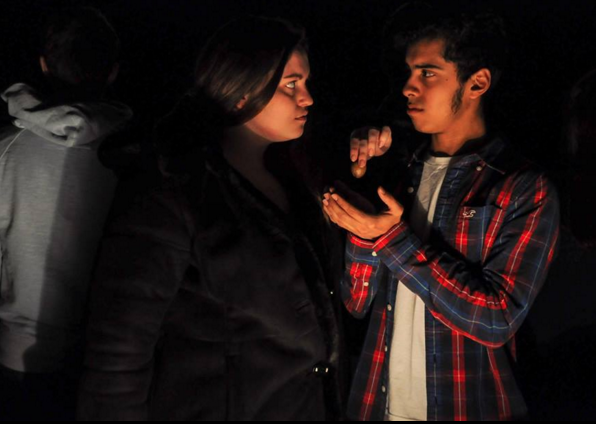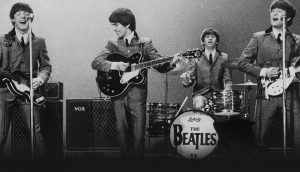By Melanie Coffey
In a world of essays to write and textbooks to read, it is easy to forget the fact that our planet’s environment is in a downward spiral. But two seniors in the Post Theatre Company, Cameron Clay and Laura Chamberlain, found the perfect way to combine academics with reminding people about the consequences of climate change in their thesis show, “Unless.” The show was made up of vignettes, stories, and raps on topics such as pollution from plastic companies, the increase in death of polar bears, and how many gallons of water are needed to manufacture products.
The show, which ran March 4 – 6 at the Rifle Range Theatre, was a collaboration of both cast and audience, with Chamberlain and Clay starting their show saying that the audience was allowed to yell and cheer and participate. Why this change from the traditional separation of audience and performers? “It made it into a more collaborative environment, which really mirrored the message we were trying to share.” Chamberlain said, “[Saving the planet] is up to all of us and we cannot do it alone”. This message was received, as the audience members came up to the two directors after the show and shared the changes they have made, such as buying reusable water bottles and unplugging chargers and lights when not in use. “That was my favorite thing to hear,” Chamberlain said, “People’s actual daily behavior was changed.”
When asked how the topic of environment was chosen, Chamberlain said that it was something that both she and Clay had been very passionate about but were not very educated on. “There was one rehearsal in which we were talking about the two degrees Celsius mark which is called the Tipping Point. [This is] when the earth’s temperature increases by two degrees Celsius from where it started. Once we reach the two degree temperature increase, we will start seeing a lot of natural disasters; floods, droughts, hurricanes, tornadoes, wildfires.” The effects can already be seen, as our weather and storms have become more extreme every year. “Personally,” Chamberlain said, “I thought that the Tipping Point was 80 or 90 years from now…” but they learned that it is estimated to start around the year 2046. “[That was the] most shocking piece of information we learned; that the effects we’ll see will be so much sooner than we thought.”
So what can we do? There are the basics of recycling, reusing water bottles, and turning off lights, which everyone knows. Chamberlain offers another answer that if done, would make far more of an impact on protecting our planet. We need to respect it. We need to respect everything from the now polluted bodies of water, to the forests that are being chopped down, and to the animals that are quickly going extinct. “All life is worth saving, all life is worth protecting. All animals, all plants are worth saving,” she says.
With that in mind, Chamberlain hopes that “Unless” teaches people to not be afraid to speak out about the consequences of climate change. “When we first started working on the show, I was someone who cared about the environment but was afraid to go into detail and to preach at people and I didn’t want to be offensive. But don’t be afraid to speak the truth. Be informed and back up what you’re saying, but let people know, because if you tell three people that this is a real issue, those three people can spread it, and spread it, and spread it, and that is so powerful.” So, on that note, go do some research and then tell three other people; it’s our planet we’re talking about.
“Unless” was presented alongside the piece “It All” which was conceived as the honors student thesis of Abby Slocum.




Be First to Comment